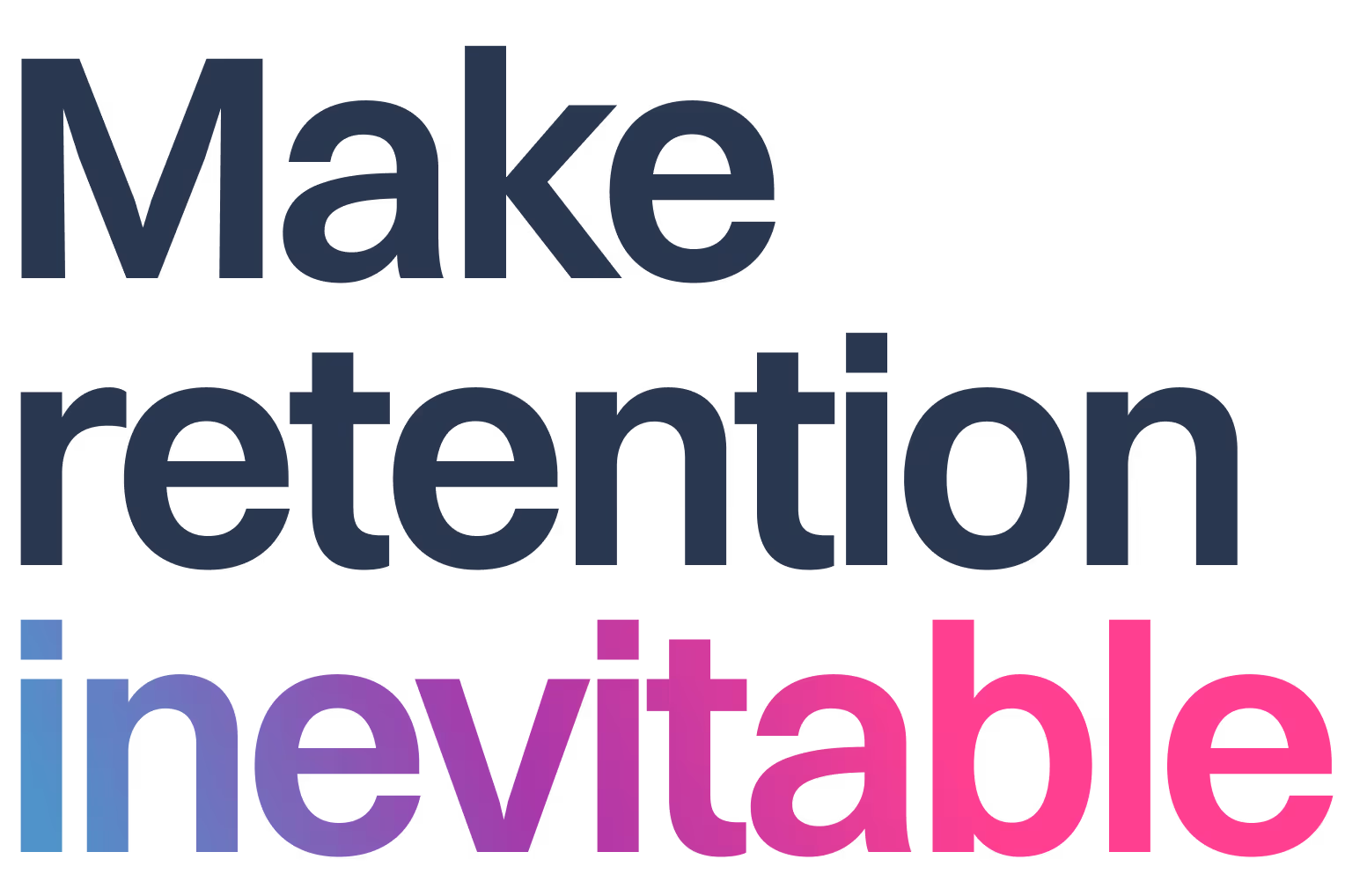The Best Email Marketing Apps for Shopify
Your Shopify store is generating traffic, but the sales aren't flowing as consistently as you'd hoped. The truth is, most visitors leave without buying, and if you're not capturing their attention beyond that first visit, you're missing out on significant revenue potential. Email marketing remains the most reliable way to turn browsers into buyers, but choosing the right platform for your Shopify store can make or break your efforts.
After helping countless e-commerce businesses optimise their email strategies, we've seen the same pattern time and again: stores that implement the right email marketing app see immediate improvements in customer retention, average order values, and long-term revenue growth. The key isn't just having an email list, it's having the right tools to segment, automate, and personalise your messaging in ways that genuinely connect with your customers.
In this analysis, we'll examine the top email marketing platforms specifically for Shopify stores, breaking down their features, pricing, automation capabilities, and real-world performance. You'll discover which apps excel at different business stages, from new stores needing simple solutions to scaling brands requiring advanced segmentation and predictive analytics.
Top Email Marketing Apps for Shopify Stores
The email marketing app market for Shopify has evolved significantly, with platforms now offering everything from basic newsletter functionality to sophisticated behavioural targeting. The key is understanding which features align with your current business needs and growth trajectory.
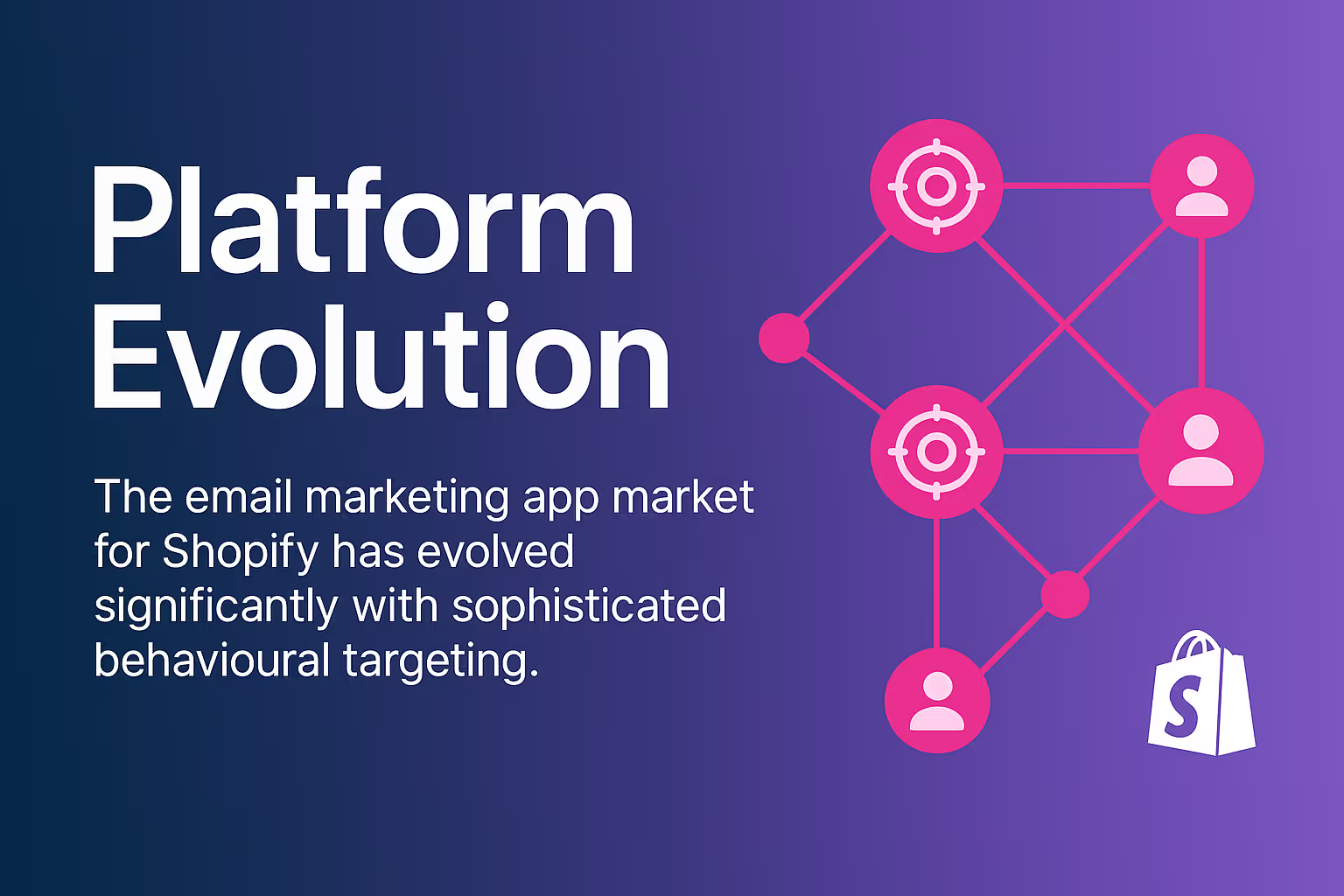
Each platform serves different business models and growth stages. Shopify Email offers the most seamless integration but lacks advanced features. Klaviyo provides sophisticated targeting capabilities that justify its premium pricing for stores with substantial email lists.
The choice often comes down to your current monthly email volume, desired automation complexity, and budget allocation. GetResponse's analysis of Shopify email marketing software reveals that stores typically see the biggest ROI improvements when they match their app choice to their actual usage patterns rather than choosing based on price alone.
Feature Comparison: What Actually Matters
Beyond the marketing materials and feature lists, certain capabilities make a genuine difference to your email performance. The most impactful features aren't always the most promoted ones.
Automation sophistication separates good platforms from great ones. Basic welcome series and abandoned cart emails are table stakes now. What matters is the ability to create complex, behavioural-triggered sequences that respond to customer actions across your entire store experience.
Segmentation capabilities often determine long-term success more than any other feature. EmailToolTester's comprehensive Shopify email marketing analysis shows that stores using advanced segmentation see 35% higher engagement rates compared to those sending generic campaigns.
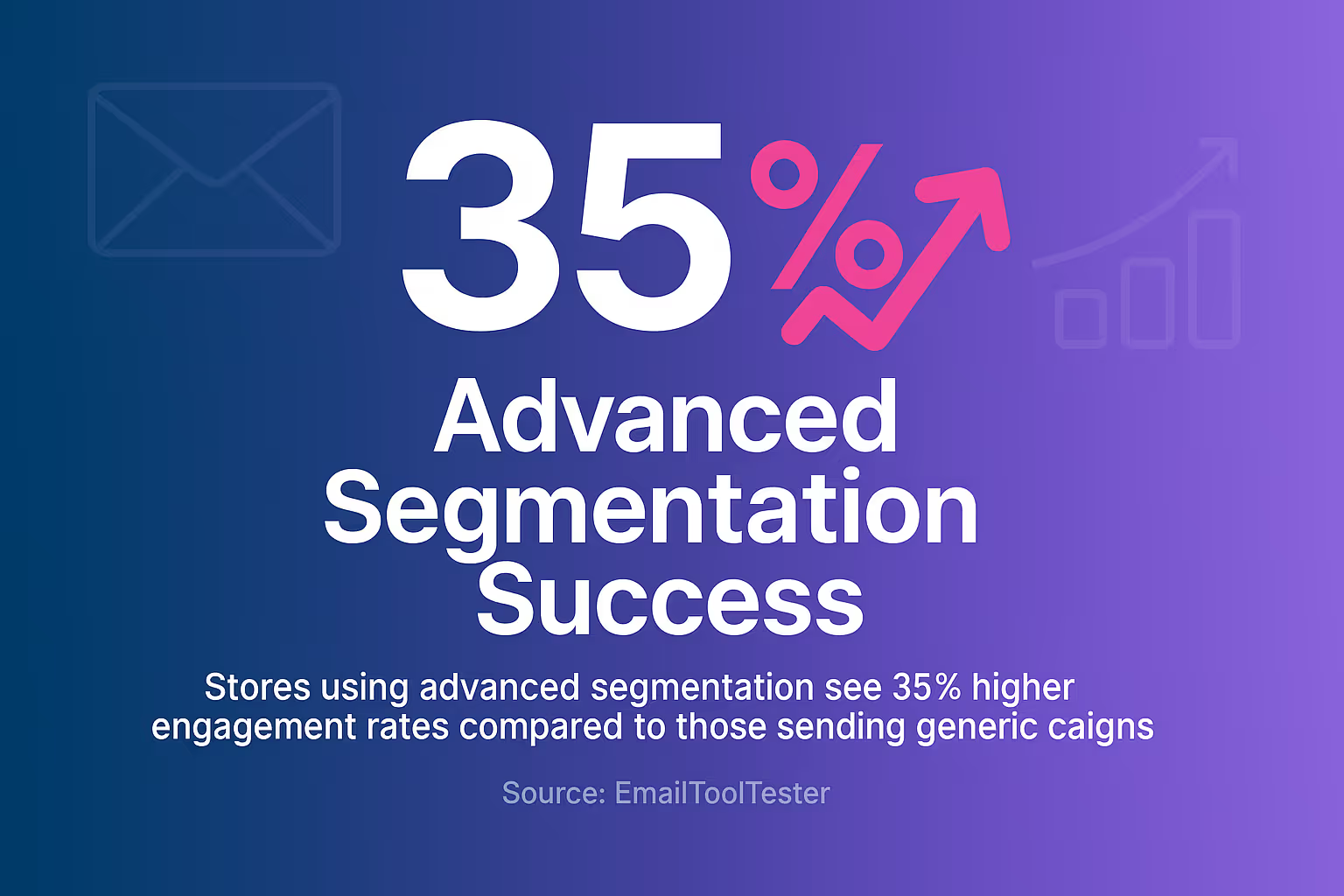
Klaviyo excels in predictive analytics, automatically identifying customers likely to make repeat purchases or become high-value buyers. Mailchimp offers robust A/B testing capabilities that help optimise campaign performance over time.
- Native Shopify integration eliminates data sync issues and setup complexity
- Mobile-responsive templates ensure your emails look professional across all devices
- SMS integration allows for coordinated multi-channel campaigns
- Advanced reporting helps identify which campaigns drive actual revenue
- Scalable pricing prevents cost shocks as your list grows
Consider your technical comfort level when evaluating features. Our detailed comparison of Klaviyo vs Mailchimp for e-commerce reveals that whilst Klaviyo offers more sophisticated targeting, Mailchimp provides a gentler learning curve for teams new to email marketing automation.
Pricing Analysis: True Cost of Ownership
Email marketing app pricing extends far beyond the monthly subscription fee. Understanding the total cost structure helps avoid budget surprises as your business scales.
Most platforms use contact-based pricing, but the way they count contacts varies significantly. Some charge for all contacts in your database, others only for engaged subscribers, and a few offer unlimited contact tiers with send-based pricing instead.
Hidden costs often emerge with add-on features. SMS integration, advanced automation, premium templates, and dedicated IP addresses typically require upgrades to higher-tier plans. Recent analysis of Shopify marketing apps for 2025 indicates that stores often spend 40-60% more than their initial budget once they add essential features.
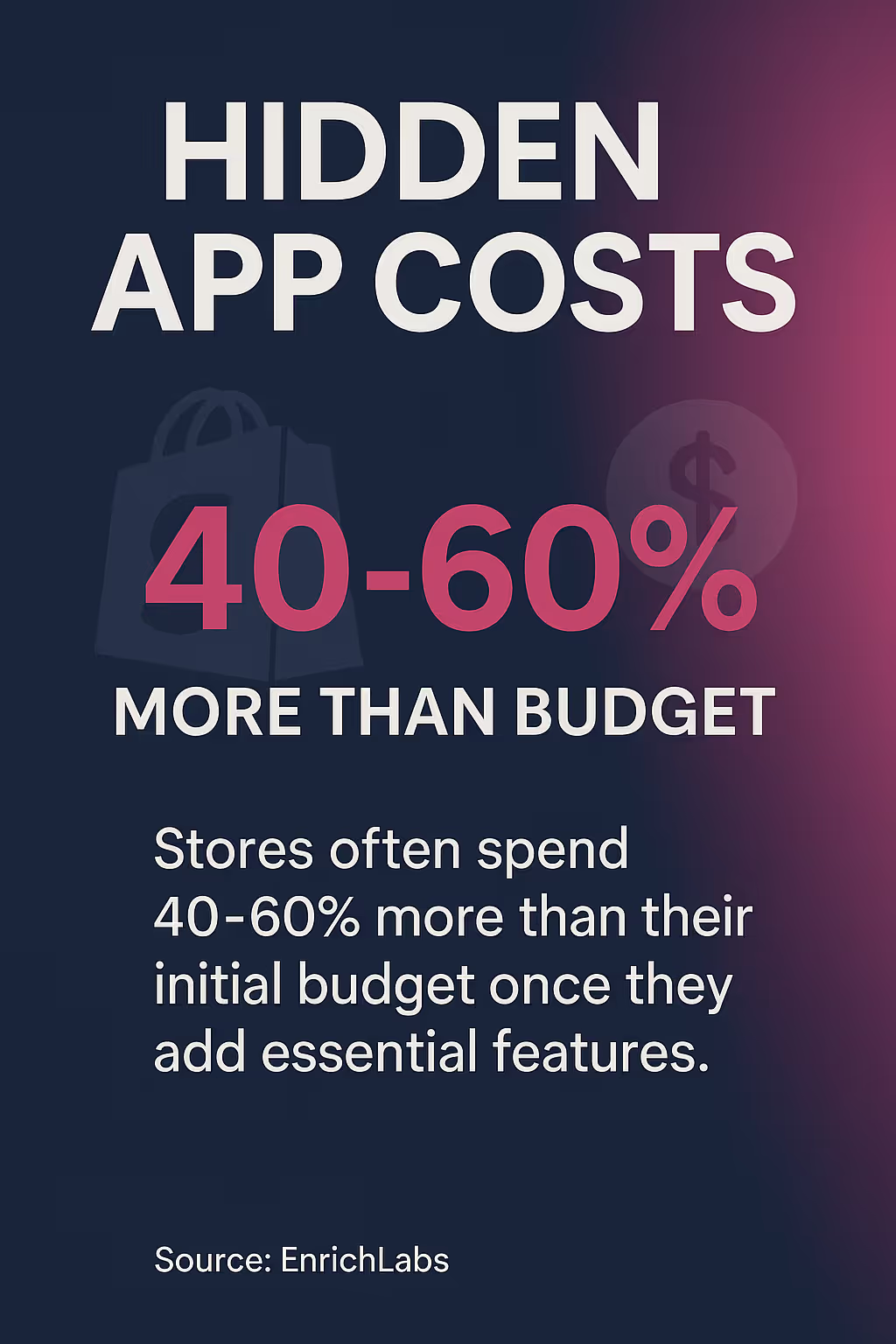
- Calculate your projected contact growth for the next 12 months, not just current size
- Factor in seasonal fluctuations that might temporarily increase your contact count
- Evaluate which features are included at each pricing tier versus paid add-ons
- Consider the cost of potential platform migration if you outgrow your current choice
- Review contract terms for annual discounts versus monthly flexibility
Shopify Email offers the most predictable pricing with its simple per-send model after the free tier. However, GetResponse's Shopify integration analysis shows that stores often find better value with contact-based pricing once they're sending regular campaigns.
Privy positions itself as cost-effective for smaller lists but charges per contact across all features, making it expensive for larger databases. The sweet spot often lies with platforms offering generous free tiers for testing, then reasonable scaling as your needs grow.
Platform-Specific Deep Dive
Each major platform has developed distinct strengths that serve different types of Shopify stores. Understanding these nuances helps match your specific needs with the right solution.
Shopify Email: The Native Advantage
Built directly into the Shopify ecosystem, this platform eliminates integration headaches and provides seamless access to your store data. Recent updates to Shopify Email functionality have expanded its automation capabilities significantly, making it viable for more sophisticated campaigns.
The main limitation remains its simplicity. Whilst perfect for straightforward newsletters and basic automated sequences, it lacks the advanced segmentation and personalisation features that drive higher engagement rates for established stores.
Klaviyo: The Data Powerhouse
Klaviyo has become the go-to choice for data-driven e-commerce businesses. Its strength lies in transforming customer behaviour into actionable insights and automated campaigns that feel personally crafted.
The platform's predictive analytics identify customers likely to make repeat purchases, those at risk of churning, and high-lifetime-value prospects. This intelligence enables highly targeted campaigns that consistently outperform generic sends.
Setup complexity can overwhelm beginners, but the long-term performance gains justify the initial learning curve for serious e-commerce brands. Klaviyo's AI-powered email marketing tools continue expanding, offering increasingly sophisticated personalisation options.
Mailchimp: The Balanced Approach
Mailchimp strikes a balance between functionality and usability that appeals to businesses wanting robust features without overwhelming complexity. Its template library and drag-and-drop editor make professional-looking campaigns accessible to non-designers.
The platform's strength lies in its comprehensive toolset that grows with your business. From simple newsletters to complex automation sequences, most features remain within the same interface, reducing the learning curve for expanding functionality.
Recent improvements to Shopify integration have addressed previous sync issues, making it a more viable option for e-commerce stores that previously looked elsewhere.
Implementation Strategy for Your Store
Choosing the right email marketing app is only half the battle. Successful implementation requires a strategic approach that aligns with your current capabilities and growth objectives.
Start with your most critical email types: welcome sequences for new subscribers and abandoned cart recovery for potential customers. These two automation flows typically generate immediate ROI and provide data for optimising more complex campaigns later.
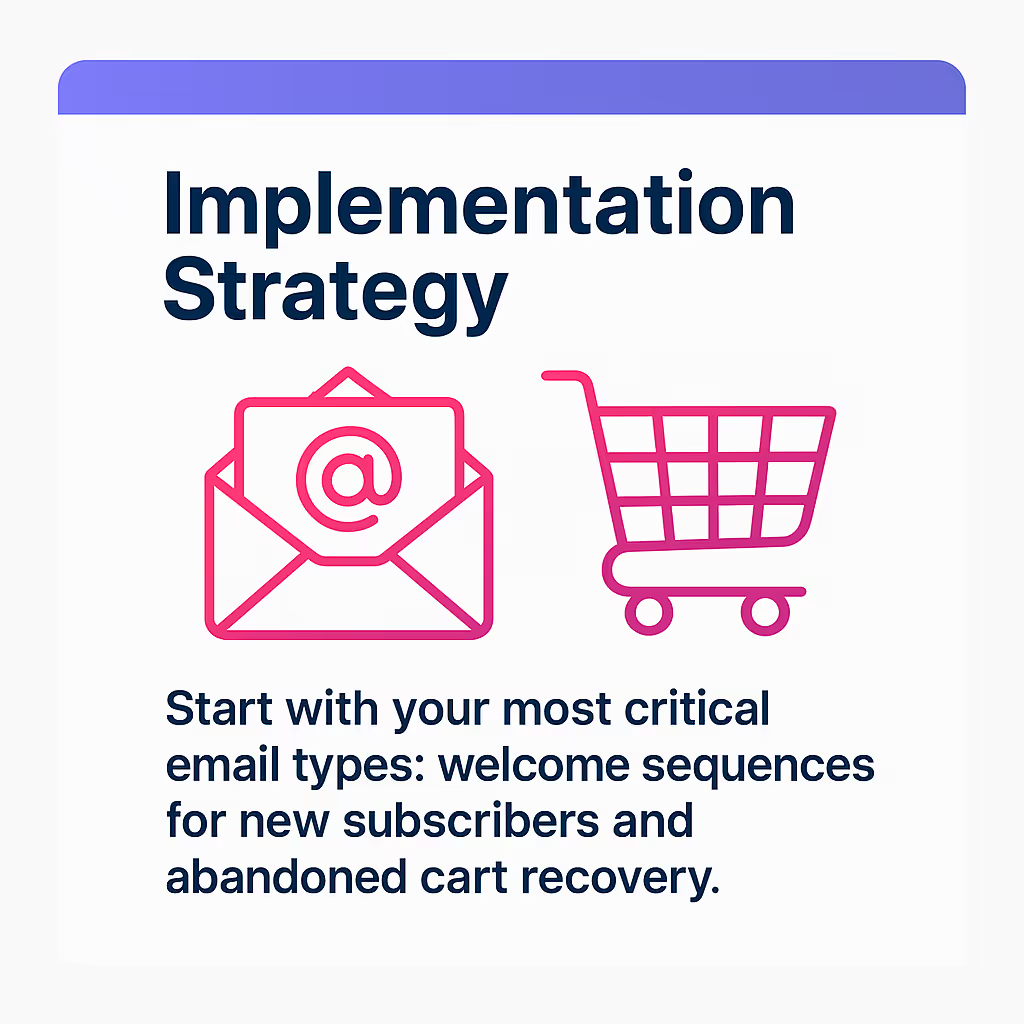
Don't attempt to implement every feature simultaneously. E-commerce email marketing best practices suggest focusing on one automation flow at a time, perfecting it, then expanding to additional sequences.
Data migration between platforms can be complex, so invest time in your initial platform choice. Export your existing subscriber data, including purchase history and engagement metrics, to ensure continuity in your new system.
- Set up basic automations first: welcome series and abandoned cart recovery
- Import and clean your existing email list to improve deliverability
- Create 3-5 customer segments based on purchase behaviour
- Design mobile-responsive email templates that match your brand
- Establish baseline metrics for measuring improvement
Plan for a gradual transition if you're switching from another platform. Running parallel campaigns briefly ensures no disruption to your email marketing whilst you optimise the new setup.
Dynamic email marketing tools for retailers can significantly improve personalisation, but introduce them after mastering basic automation flows. This staged approach prevents overwhelm whilst ensuring each feature adds genuine value to your campaigns.
Making Your Final Decision
The best email marketing app for your Shopify store depends on where you are now and where you want to be in 12 months. Rather than choosing based on current needs alone, consider your growth trajectory and the capabilities you'll need as your business scales.
For new stores with limited budgets, Shopify Email provides a solid foundation without additional monthly costs. You can always upgrade later as your needs become more sophisticated.
Established stores generating consistent sales should invest in platforms like Klaviyo or Mailchimp that offer advanced segmentation and automation capabilities. The additional monthly cost typically pays for itself through improved customer retention and higher order values.
Growing businesses benefit most from platforms that scale gracefully. Avoid solutions that require complete platform changes as your contact list or feature needs expand. The disruption and learning curve of switching platforms often outweighs short-term cost savings.
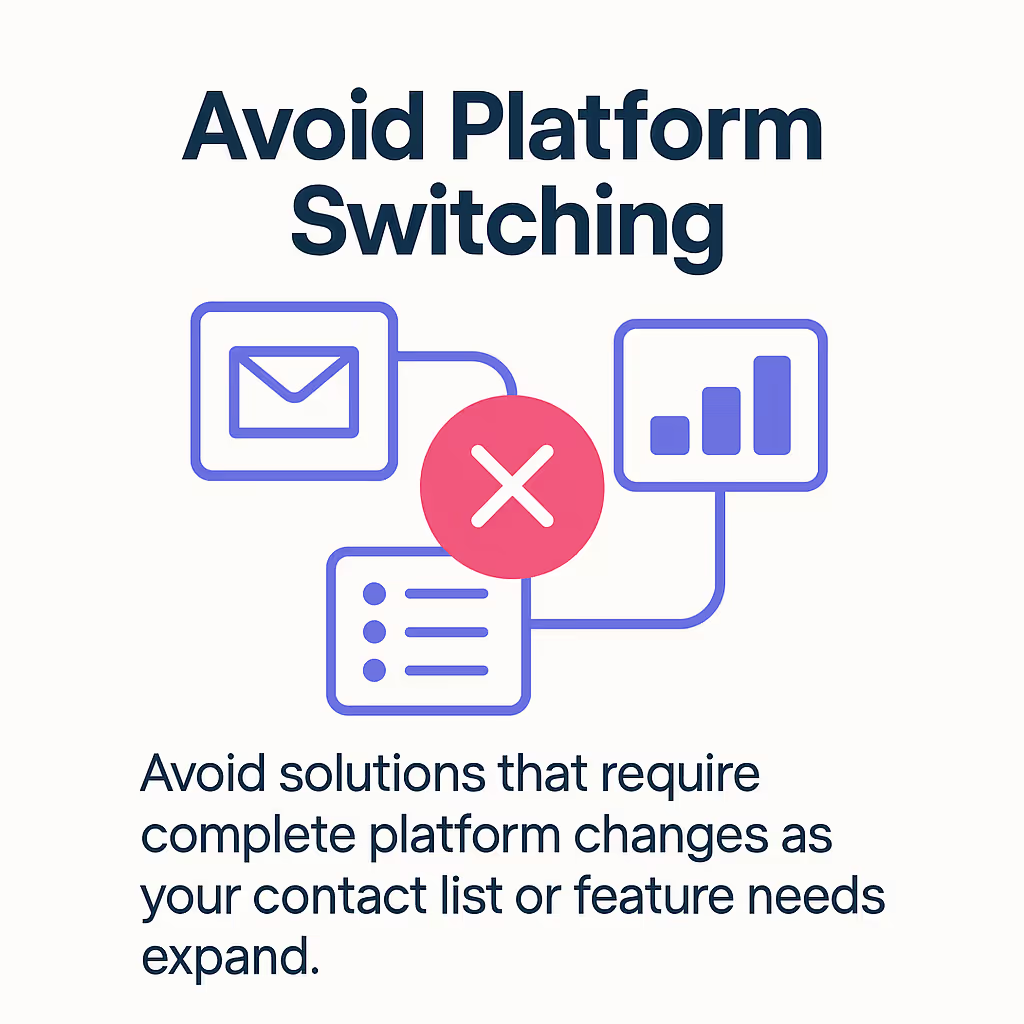
Test your chosen platform with a small segment of your email list before fully committing. Most platforms offer free trials or freemium tiers that let you evaluate their interface, automation capabilities, and reporting features with real data from your store.
The goal isn't finding the perfect platform, it's finding the right platform for your current situation that can grow with your business. Start implementing your chosen solution this week, focus on the fundamentals first, and let your results guide your next optimisation steps. Your customers are waiting to hear from you, and the right email marketing app will help ensure your messages reach them at exactly the right moment.
Our detailed guide to the top email marketing platforms for Shopify provides additional platform comparisons and implementation strategies to help you make the most of whichever solution you choose.




.svg)
.avif)








